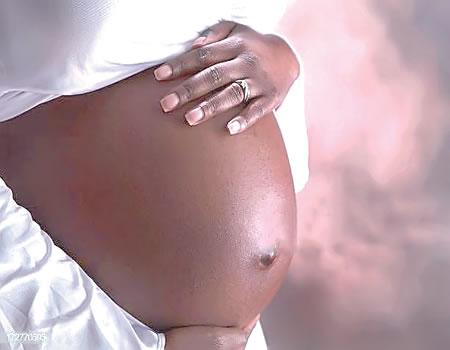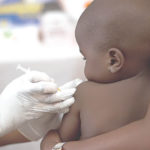
Experts have said that faith-based intervention, youth-oriented antenatal care package, education of girls and access to health insurance coverage could speed up the reduction of home delivery among young mothers in Nigeria.
In a new study, researchers had found that more than two-thirds (approximately 70 per cent) of adolescents and young mothers were delivered of their babies at home in Nigeria, higher in prevalence than the national average for all women of reproductive age in Nigeria.
According to the study, the prevalence of home delivery among young mothers aged 15 to 24 years was 78.9 per cent in rural and 43.9 per cent in urban Nigeria while regionally, the highest and the lowest prevalence of home delivery occurred in the North-West (86.3 per cent) and the South-East (18.8per cent) regions, respectively.
This national population-based cross-sectional study had assessed the prevalence and determinants of home and health care facility childbirth among young 7543 mothers aged 15 to 24 years based on the 2013 Nigeria Demographic and Health Survey (NDHS). It was in the British Medical Journal Open.
They found that being classed in the poor wealth index, residence in the North-West region and lack of maternal education were the three leading factors associated with increased odds of home delivery among young mothers in Nigeria.
According to the study, lack of health insurance difficulty with distance to healthcare facilities, and less than four times of antenatal attendance were major enabling factors that increased the odds of home delivery by these young mothers.
In addition, six predisposing factors—lack of maternal and husband’s education, poor wealth index, religion, high parity and low frequency of listening to the radio—were associated with increased odds of home delivery.
Mothers in poor households had over threefold higher prevalence of home delivery than their counterparts in rich households. Married mothers had a higher prevalence of home delivery (70.8 per cent) compared with their counterparts who were never married (48.8 per cent).
In addition, mothers in the Islamic religion had a higher prevalence of home delivery (80.2 per cent) than their Christian counterparts (43.5 per cent).
They, however, suggested that the disparities in socioeconomic and educational development, as well as the distribution of healthcare services/facilities and the impacts of culture/religion in the various regions in Nigeria may explain the regional differences in home childbirth across Nigeria.
The researchers added, “Efforts aimed at improving healthcare facility delivery among young mothers in Nigeria need to focus more on bridging regional, geographical as well as socioeconomic disparities in access to healthcare facilities and services.
“Free maternal healthcare services, access to health insurance coverage, socioeconomic empowerment, as well as youth-oriented antenatal care package are practical and implementable interventions clearly recommended by our findings.
“Also, target-specific interventions such as faith-based health promotion and availability of female service providers may improve institutional delivery among young Muslim mothers.”
Studies have shown that deliveries among adolescents and young mothers are characterised by prematurity, low birth weight, systemic infections, and maternal and neonatal mortality, which are known contributors to the burden of maternal and neonatal mortality.
YOU SHOULD NOT MISS THESE HEADLINES FROM NIGERIAN TRIBUNE
More Shocks As Unemployment Data Exposes Misery Status Of Nigerians
BEFORE now, economic and finance experts found it difficult to assess the healthy nature of the labour market and how to measure the impact of government policies targeted at creating jobs because of lack of real time labour data. But on Friday, August 14, 2020, the concerns were only slightly eased as the National Bureau of Statistics (NBS) published second quarter (Q2):2020 labour statistics, the first report since Q3:2018…
MONDAY LINES: Obasanjo’s (D)Art Of Condolence
Ben Guriano of The Washington Post described them in 2018 as ‘taboo enforcers.’ These are trolls seeking to upend truth and subvert facts about the life and times of the dead. ‘Do not speak ill of the dead’ came originally from a Spartan philosopher, then it was latinated by the Romans to read De mortuis nihil nisi bonum – and got spread around the world like Chinese viruses. The black man, as in all cases, contracted the no-no and turned it into a religion, got drunk with it and won’t mind killing for it…
2.4 Million Households To Benefit From FG’s Stimulus Package — Presidential Aide
TO ensure food security for citizens, at least 2.4 million households will benefit from the Federal Government’s post-COVID-19 stimulus package, a presidential aide says. Dr Andrew Kwasari, Senior Special Assistant (SSA), to the President on Agriculture, disclosed this in an interview with the News Agency of Nigeria (NAN) on Sunday in Abuja. Kwasari spoke against the backdrop of projects anchored by the Nigerian Economic Sustainability Committee (NESC) to secure the economy against the effects of COVID-19…
SERAP Demands Withdrawal Of Broadcasting Code Seeking To Sanction Contents ‘Insulting’ Leader
THE Socio-Economic Rights and Accountability Project (SERAP) has sent an open letter to President Muhammadu Buhari, urging him to “urgently instruct the Minister of Information and Culture, Mr Lai Mohammed, and the National Broadcasting Commission (NBC) to withdraw the apparently illegal broadcasting code and memo threatening to sanction any broadcast that denigrates, disrespects or insults the president, governors…
WATCH TOP VIDEOS FROM NIGERIAN TRIBUNE TV
- Let’s Talk About SELF-AWARENESS
- Is Your Confidence Mistaken for Pride? Let’s talk about it
- Is Etiquette About Perfection…Or Just Not Being Rude?
- Top Psychologist Reveal 3 Signs You’re Struggling With Imposter Syndrome
- Do You Pick Up Work-Related Calls at Midnight or Never? Let’s Talk About Boundaries






